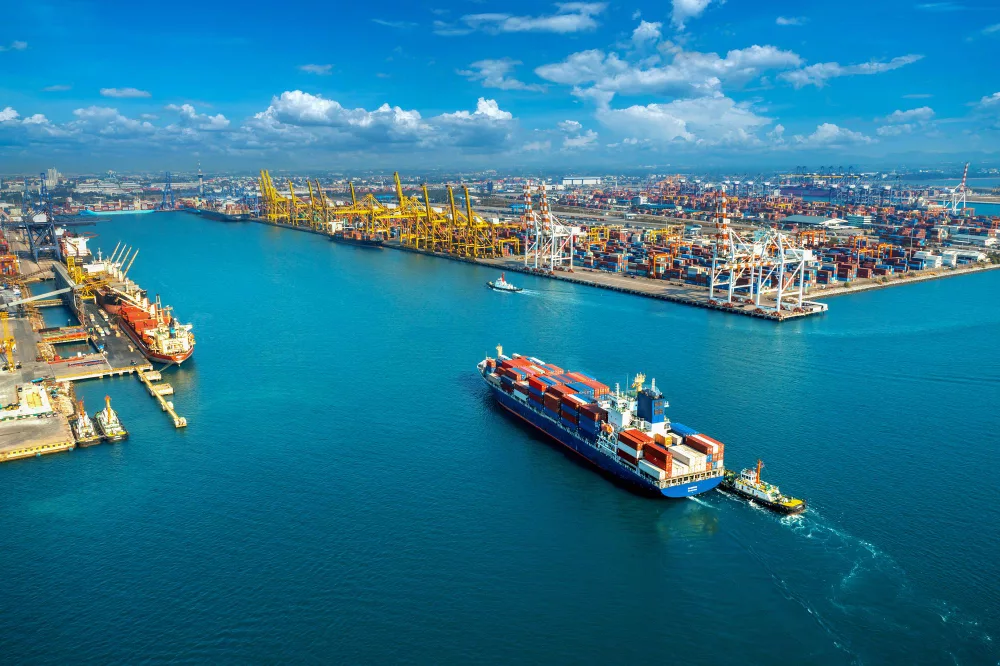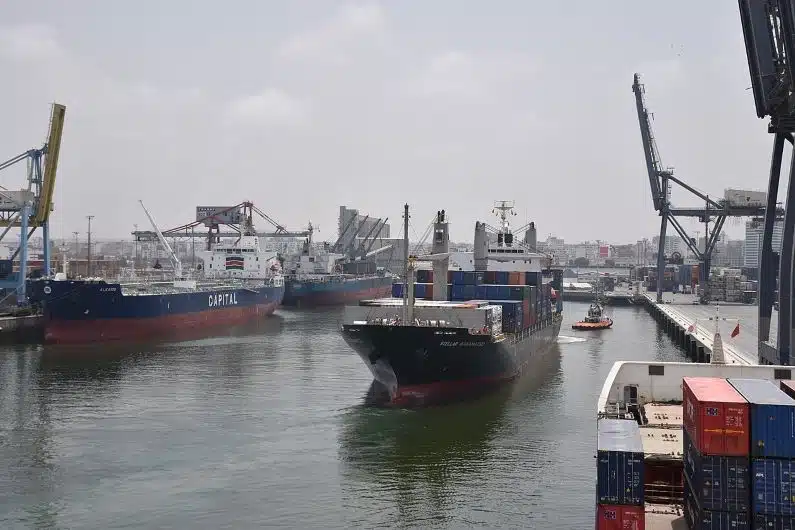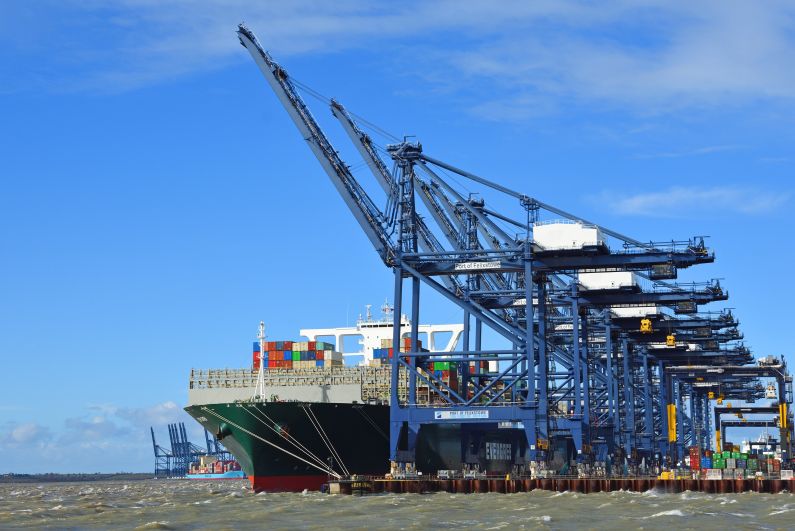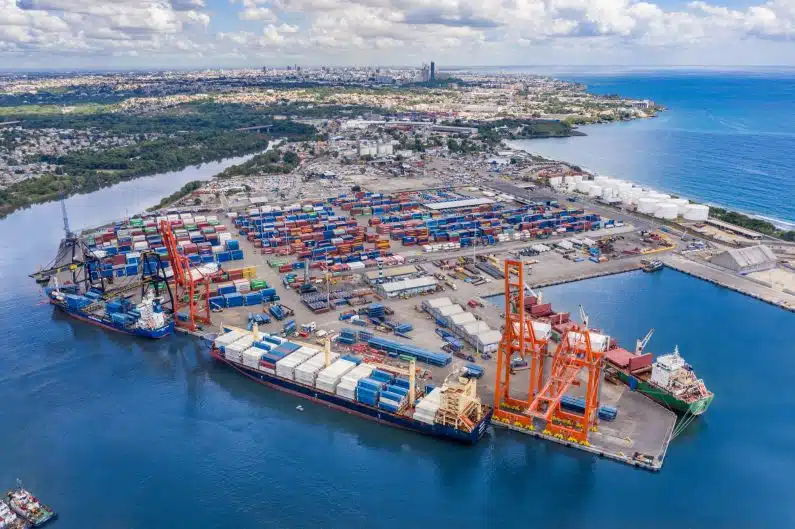Shipping to Switzerland requires meticulous planning and strict adherence to regulations. Whether you’re involved in construction, mining, or other industries that rely on heavy machinery, understanding the process of shipping equipment is crucial for successful and efficient transportation.
At Texas International Freight, we specialize in handling the complexities of shipping heavy equipment, and we are here to provide you with the expertise and support you need. In this comprehensive guide, we will walk you through the key considerations and steps involved in shipping heavy equipment to Switzerland, ensuring a smooth and hassle-free experience.
With our extensive experience and personalized service, you can trust us to handle your unique shipping needs and deliver your equipment safely to its destination in Switzerland.
 Shipping to Switzerland: Overview
Shipping to Switzerland: Overview
Transporting heavy materials from the U.S. to Switzerland comes with complications due to the longevity of the trip. Shipping to Switzerland requires equipment handling, transportation, customs clearances, and delivery. Although seemingly complicated, Texas International Freight has your shipping worries under control. With a wide range of shipping options, you can be sure your needs are met.
Pre-shipping Preparation
Before shipping heavy equipment to Switzerland, thorough preparations are necessary. You should:
Determine shipping requirements: Identify the type and size of the equipment and consider any specific regulations or restrictions for shipping to Switzerland.
Arrange necessary documentation: Obtain permits, licenses, and certifications required for shipping. Prepare equipment specifications, including dimensions and weight, and ensure compliance with customs and import/export regulations.
Shipping Methods from Houston to Switzerland
Sea Freight
One of the most traditional and widely used shipping methods for international trade is sea freight. The Port of Houston serves as a significant hub for maritime shipping, offering access to various international ports, including those in Switzerland such as the Port of Basel. Sea freight is particularly beneficial for bulk shipments or items that are not time-sensitive. Although transit time can range from 20 to 30 days depending on various factors, the cost-effectiveness of this method remains unparalleled for large consignments.
Air Freight
If speed is of the essence, air freight is the most suitable method for shipping from Houston to Switzerland. The George Bush Intercontinental Airport in Houston offers regular flights to major Swiss airports, such as Zurich and Geneva. Air freight is most suitable for perishable goods, high-value items, or time-sensitive shipments. While the transit time is significantly shorter, usually within 3 to 5 days, the cost can be substantially higher compared to other shipping methods.
Rail and Intermodal Shipping
Though rail shipping is not directly possible between Houston and Switzerland due to geographical constraints, intermodal transportation that combines rail with sea freight offers a balanced alternative. This method is often utilized for shipping goods that are not extremely time-sensitive but still require a more rapid delivery compared to sea freight alone. Containers are often transported by rail to a U.S. port, where they are then loaded onto a sea freight ship headed to Switzerland.
Road Freight
Similar to rail and intermodal shipping, road freight often serves as a part of a more complex shipping arrangement. Trucks may be used for initial and final legs of the journey, offering door-to-door service. This method is often combined with sea or air freight for more comprehensive shipping solutions. While road freight alone is not feasible for international shipping between Houston and Switzerland, it plays a critical role in the overall logistics chain.
Courier Services
For small parcels or documents that need to be delivered quickly and securely, courier services provide an ideal solution. Companies like FedEx, UPS, and DHL offer specialized services for international shipping between Houston and Switzerland. While the cost per kilogram is generally high, courier services offer expedited customs clearance and real-time tracking features.
Specialized Shipping
In cases where the cargo has special requirements such as temperature control, hazardous materials handling, or extra-secure packaging, specialized shipping options are available. These often combine elements of air, sea, and road transport but with additional layers of service such as refrigeration, increased security, or customized crates to ensure the cargo reaches its destination in optimal condition.
Each of these shipping methods has its unique advantages, drawbacks, and best-use scenarios. By understanding the specific requirements of your shipment, you can select the most appropriate and cost-effective shipping method for transporting goods from Houston to Switzerland.
Insurance and Risk Management for Shipping Containers from the U.S. to Switzerland
Cargo Insurance
When shipping containers from the U.S. to Switzerland, one of the primary considerations should be cargo insurance. This type of insurance covers the risk of loss or damage to goods during transit, either due to natural disasters, theft, or mishandling. Depending on the policy, coverage can extend from the point of origin to the destination, offering comprehensive protection.
Types of Cargo Insurance
All-Risk Coverage
This is the most inclusive form of insurance, covering a wide range of incidents except those specifically excluded in the policy, such as acts of war.
Named Perils
This insurance only covers risks that are explicitly named in the policy.
Total Loss Only (TLO)
This is a more limited form of insurance, covering the goods only in the event of a total loss.
Risk Assessment
Before selecting an insurance policy, it is essential to perform a thorough risk assessment. Factors like the type of goods being shipped, their value, and susceptibility to damage should be considered. The shipping route, mode of transport, and any transshipment points can also influence the level of risk involved.
Container Tracking and Security
Modern technology offers various tools to mitigate the risks associated with shipping containers. Real-time GPS tracking can provide constant monitoring of the container’s location. Security seals and smart locks can prevent unauthorized access, while temperature and humidity sensors can alert you to any environmental factors that may affect the condition of the goods.
Liability Coverage
Beyond cargo insurance, companies should also consider liability coverage to protect against legal claims related to shipping incidents. Carrier liability insurance can offer protection against claims from third parties for damage or loss occurring due to negligence during transit.
Customs and Regulatory Compliance
Ensuring compliance with customs regulations is another form of risk management. Failure to comply can result in delays, financial penalties, or confiscation of the goods. Having the proper documentation and understanding the customs requirements of both the U.S. and Switzerland is crucial for a smooth shipping process.
Contingency Planning
Despite best efforts, unforeseen incidents can occur. Contingency plans should be in place to manage disruptions effectively. This can include alternate shipping methods or routes, backup suppliers, and pre-negotiated contracts with third-party logistics providers.
Cost-Benefit Analysis
Finally, it is essential to perform a cost-benefit analysis when considering insurance and risk management options. While cutting corners on insurance may save money in the short term, the long-term risks could be financially devastating. A balanced approach that aligns with the value and nature of the goods being shipped is generally the most prudent strategy.
By taking a comprehensive approach to insurance and risk management, companies can significantly reduce the potential for financial loss and operational disruptions when shipping containers from the U.S. to Switzerland.
Arrival and Delivery
Handling Upon Arrival
Once the shipment arrives in Switzerland, it enters the receiving phase, which includes unloading, inspection, and, in some cases, temporary storage. It’s crucial to have a trusted local partner or agent who understands the logistics landscape in Switzerland to ensure a smooth handover from international to domestic handlers. This helps in quick problem-solving if discrepancies or damages are identified during the unloading and inspection processes.
Time-Sensitive Goods
For time-sensitive or perishable goods, it’s essential to have specialized handling arrangements. Cold storage facilities, quick transfers, and expedited customs processes are some of the options that can help in preserving the quality and value of the shipment.
Tracking the Shipment
Real-time Tracking
Most modern shipping companies provide real-time tracking services that enable you to monitor your shipment throughout its journey. This feature is invaluable for managing expectations, updating your customers, and intervening quickly if any issues arise.
Alert Systems
Several tracking systems offer alert notifications for critical events like delays, customs clearance, or arrival at the destination. These alerts allow for proactive risk management and can enable quicker decision-making to mitigate any potential issues.
Customs Clearance and Import Duties
Documentation
The customs clearance process requires meticulous documentation. This often includes the commercial invoice, packing list, bill of lading, and other import/export forms. Failure to provide accurate and complete documentation can result in delays and additional costs.
Duties and Taxes
Switzerland has its own set of import duties and tax regulations that differ from the European Union, despite its proximity. It’s crucial to understand these duties and how they apply to your specific goods to avoid unexpected expenses and legal complications.
Customs Brokers
Many companies opt to employ a customs broker to handle the complexities of customs clearance. These professionals understand the intricacies of Swiss import regulations and can help expedite the clearance process while ensuring compliance with all laws and regulations.
Transportation to the Final Destination
Last-Mile Delivery
Once the shipment has cleared customs, the final stage is the ‘last-mile’ delivery to the end customer or retail point. Depending on the nature of the goods and the delivery requirements, various options are available, including road freight, courier services, or specialized delivery services.
Distribution Centers
For larger shipments or ongoing operations, utilizing a distribution center in Switzerland can be an effective way to manage the final leg of the journey. These facilities can handle bulk shipments and break them down for individual deliveries, offering a more cost-effective and streamlined process for reaching end customers.
Quality Assurance
The integrity of the shipment should be confirmed upon arrival at the final destination. This step is crucial not only for customer satisfaction but also for insurance and liability purposes.
By carefully managing each of these stages—arrival and delivery, tracking, customs clearance, and transportation to the final destination—companies can ensure a more reliable, efficient, and compliant shipping process from the U.S. to Switzerland.
Conclusion
Shipping heavy equipment to Switzerland is a complex process that demands careful planning, adherence to regulations, and the expertise of a reliable shipping partner. Texas International Freight is here to guide you every step of the way, ensuring a seamless shipping experience.
With our comprehensive services and knowledge of Swiss customs and logistics, we can help you navigate the complexities of shipping heavy equipment and deliver your valuable cargo to Switzerland safely and efficiently.
Trust us to handle your unique shipping needs and maximize your business opportunities in Switzerland. Contact Texas International Freight today and let us simplify your shipping journey.
Frequently Asked Questions (FAQS)
Q: Can I track my shipment from Houston to Switzerland?
A: Yes, most shipping providers offer online tracking systems that allow you to monitor the progress of your shipment and stay informed about its location and estimated arrival time.
Q: What shipping methods are available for shipping to Switzerland from Houston?
A: Common shipping methods include air freight and ocean freight. Air freight offers faster transit times, while ocean freight is more cost-effective for larger shipments.
Q: What steps should I take for customs clearance of heavy equipment in Switzerland?
A: Ensure that you have all the necessary documentation in order, including customs forms, permits, and certificates. It is advisable to work with a customs broker who can assist you with the clearance process.
Q: What should I consider when selecting a shipping provider for heavy equipment transportation to Switzerland?
A: Factors to consider include the provider’s experience in shipping heavy equipment, their reputation, track record, and their ability to handle the specific requirements of your shipment.
Q: What shipping method is suitable for transporting oversized equipment to Switzerland?
A: Breakbulk shipping is often used for transporting oversized or non-containerizable equipment, ensuring safe handling and stowage during the shipping process.
Q: What documents are required for shipping heavy equipment to Switzerland?
A: Key documents include equipment specifications, commercial invoice, packing list, certificates of origin, and any necessary permits or licenses.
Q: How long does it take to ship heavy equipment to Switzerland?
A: The shipping time can vary depending on factors such as the origin, shipping method, and customs clearance. It is best to consult with your shipping provider for an estimated transit time.























































